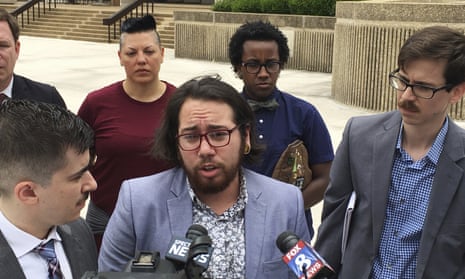A federal judge has affirmed the right of transgender people to use bathrooms matching their gender identity in North Carolina, by approving a legal settlement brought by Governor Roy Cooper and LGBTQ rights groups.
The settlement marks the end of a three-year battle over a controversial North Carolina “bathroom bill”, which forced transgender people to use bathrooms that matched the gender on their birth certificate in state-owned buildings such as universities and highway rest stops.
The bill, also known as HB2, was signed into law in March 2016. That prompted businesses to cancel expansions in the state and drove the NBA to move its All-Star Game, costing North Carolina millions.
“After so many years of managing the anxiety of HB2 and fighting so hard, I am relieved that we finally have a court order to protect transgender people from being punished under these laws,” said Joaquin Carcaño, the lead plaintiff.
Under the settlement, the state cannot block transgender people from using bathrooms in state-owned buildings that match their gender identity.
The settlement was opposed by Republican legislative leaders who passed the “bathroom bill” and its 2017 replacement.
The 2017 bill rescinded the bathroom birth certificate requirement, but civil rights groups insisted the state needed to clarify that transgender people had the legal right to use bathrooms matching their gender identity.
“Using facilities that match one’s gender identity is a basic necessity for full participation in society, and this order’s confirmation that transgender people can do so is an important victory,” said Lambda Legal lawyer Tara Borelli, representing the six plaintiffs.
A provision of the replacement bill which bars cities and other local governments from introducing anti-discrimination protections for LGBTQ people until 2020 remains in place.
Carcaño said he was frustrated the state continued to ban cities from introducing anti-discrimination laws.
“The fight for full justice will continue,” he said.
